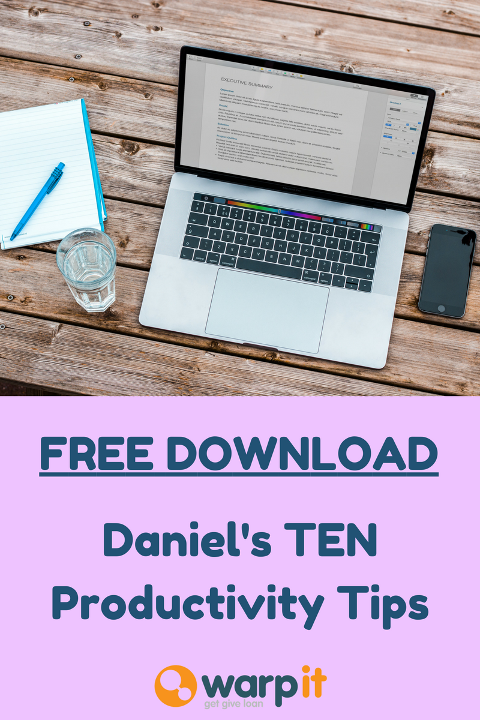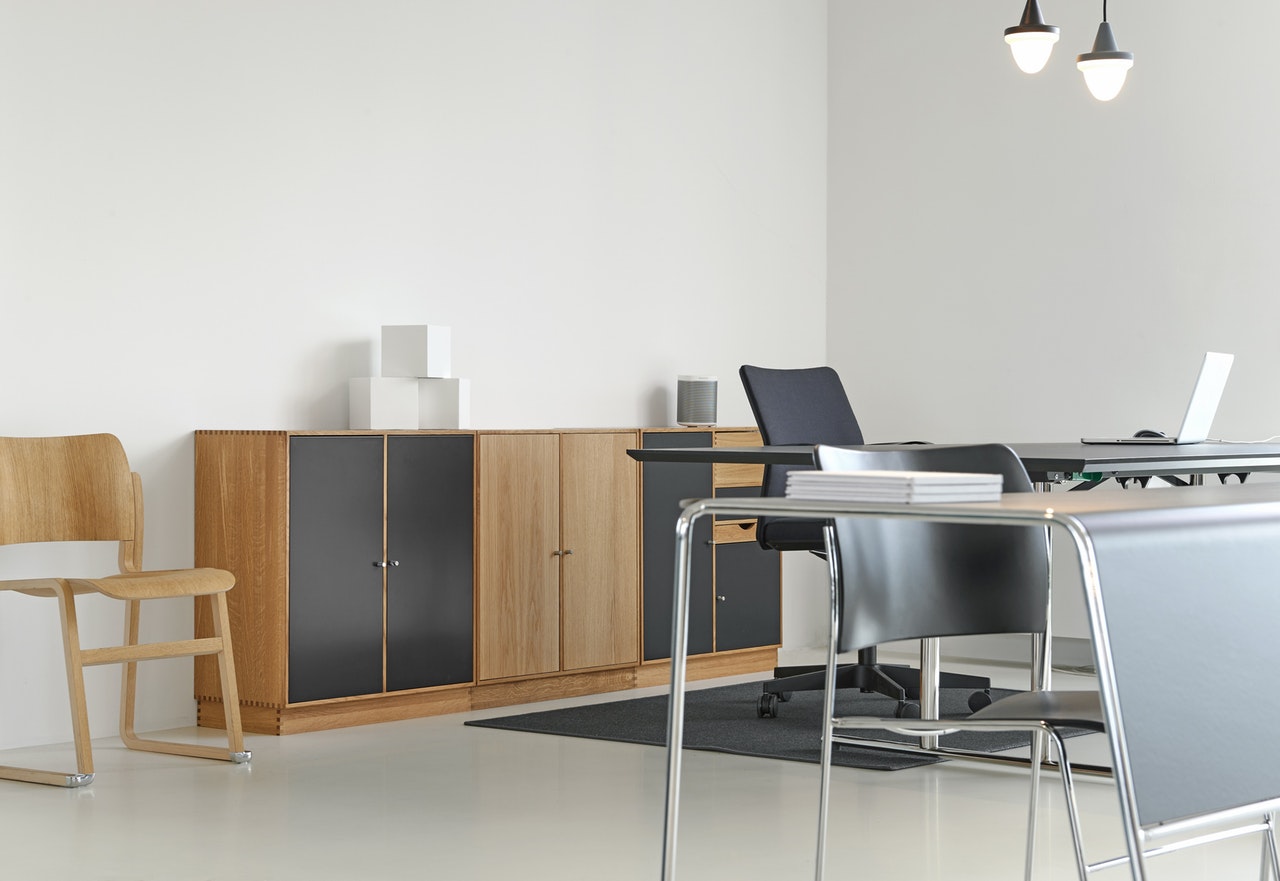|
If you read our blog regularly, you’ll probably have thought, 'why the heck would a reuse programme/ portal be writing about productivity and ways of working?' The answer is that our customers, and potential customers are all in organisations delivering various initiatives. Anything we can do to help them win and excel at work is a huge positive. We provide value to those who need it.
Overworking yourself
|
|
You will know the importance of being productive, trying to grow, trying to have a positive effect and trying to keep on top of everything. It’s hard, and it can be overwhelming sometimes.
|
|
So, this quick blog post is about the importance of taking breaks...

Daniel O’Connor, Warp It’s founder, shares this story, “I was in a training workshop by a chap called David Hieatt, who is the co-founder of Hiut Denim, and the Do Book company, and also Howie's, the clothing company. He told us a story about an experiment that they did back when everybody did manual labour. I'm talking about the early 1800s. There was an experiment where they had twenty men, and they had to fill a railroad wagon full of stones, by hand or using shovels and spades, and they did the work with no break, filling 14 wagons in a day. So, they gave them the next day off, and the following day they said 'for every hour you work, you're going to get a 20 minute break. So, they worked the same amount of time, but they filled 20 wagons because of the resting allowed. They could recoup their energy. They could have some food. They could have some water. They could eat a bit of protein to mend the muscles. They could eat a bit of slow-burning carbohydrate to give them energy. At that point people started to realised, if you give people breaks, they're going to be more productive.”
The same applies for working in an office
|
|
There are many different breakdowns for how to do work and take breaks. The Pomodoro technique is the most popular, in which you work for 25 minutes and pause for 5. Warp It’s Daniel O’Connor says “When I was at university, I had another take on the Pomodoro technique . I was well known for doing 20 minutes work and taking a 20 minutes break. I worked consistently and managed to escape out of uni with a decent grade. ”
Take regular breaks!
|
|
Daniel encourages you to follow in his footsteps and find a work and break routine that works well for you. Now, if you work in a office, your boss might not be very happy if you work for 20 minutes and then spend 20 minutes wandering around, so be respectful of that. He says “People always say how productive I am. I think I could be more productive, but I always respect the breaks. On the days I get absorbed with ‘firefighting’, I don't take breaks. Those are the days I get stressed, and those are the days when I don't feel like I achieve anything. So, I always try to take a break, and I use a thing called a ‘Eggtimer'. As soon as I sit down, I hit the timer, and that will time me for 25, 35 or 45 minutes depending on what work it is. An alarm will go off, and I'll get up and take a break. I make a cup of tea. I'll have something to eat. I usually do something to get the heart rate going. I might do some star jumps, or maybe a plank, or run up and down the stairs. I might even go out on my skateboard! In addition to the regular short break, without fail I will always do some exercise in the day for 30 mins+, usually around dinner.
|
|
Daniel got into this habit when he used to work in Newcastle University, where three or four times a week, he would take a longer break in the middle of the day to play a game of five-a-side football. His boss was happy to give him a break because he knew that he’d perform much better at his duties when he came back. His brain was fresh and pumping full of energy and ideas.
Daniel continues, saying “I used to cycle to and from work. And in that time, I used to get these amazing insights about my work life, which would make me much more productive. I would be cycling to work, thinking about and planning the day, and on the way back from work, processing everything that went on at work. “
We recommend taking a break and using it as an opportunity to exercise. If you want to do some exercise in the middle of the day, multiple times, or even for extended times periods, just go and do it (as long as you have permission!). There are only a couple of things in life which are scientifically proven to build new brain cells, and exercise is one of them.

|
|
What counts as a break?
This is for the work-aholics out there. We all know the old adage; a change is as good as a rest. So that’s what you should do. You should work for 40 minutes and then do something else, perhaps do something you can do with your phone whilst walking, like listening to voicemails or checking in on colleagues. But, you need to get out of the office. Our ultimate advice is to get out and enjoy some fresh air. Get up, away from your desk, and go talk to colleagues about any issues you're having. Going to colleagues is great for productivity and collaboration, as long as you don’t overdo it. Go to see a colleague across the campus, or estate, go up and down stairs and through corridors to get the heart going. Don't even book a meeting, just go and see if someone's there on the off-chance. While you're walking to and from that potential 10 minute chat, you're thinking and processing work.
You could even grab a PDF or a book, and go sit somewhere quiet to have a cup of tea. You could sit and have a quick look at your calendar, and make sure your week is on track. There are ways to take breaks, and still be “working”. But, the best break is to just to stop working for a short time. Do exercise, go for a walk, have a snack or sit and chat with your mates.
Get away while you can!
|
|
Get away from the screen. Don't take a break from your PC to then start checking your Twitter, or Linkedin. Get away from that PC. Leave your phone and tablet on the desk. Avoid the screens and go to nature. Sit in the park, listen to the birds, watch people walk and smile and enjoy a hot drink.
Think, and rest, and return refreshed.
If you like this then this article will also be of interest.
We also recommend downloading our FREE guide to productivity below:
|
|



